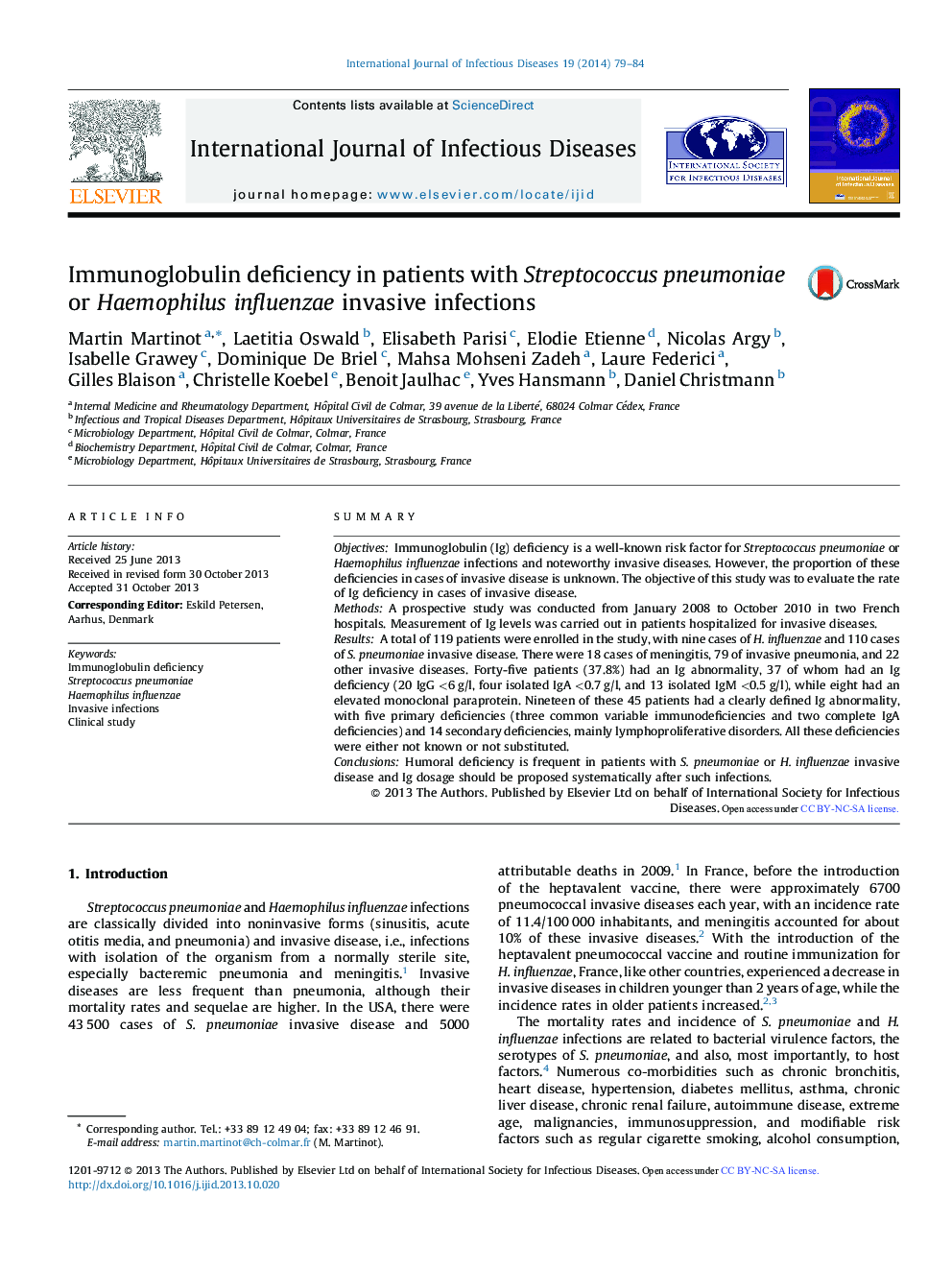| Article ID | Journal | Published Year | Pages | File Type |
|---|---|---|---|---|
| 3362764 | International Journal of Infectious Diseases | 2014 | 6 Pages |
SummaryObjectivesImmunoglobulin (Ig) deficiency is a well-known risk factor for Streptococcus pneumoniae or Haemophilus influenzae infections and noteworthy invasive diseases. However, the proportion of these deficiencies in cases of invasive disease is unknown. The objective of this study was to evaluate the rate of Ig deficiency in cases of invasive disease.MethodsA prospective study was conducted from January 2008 to October 2010 in two French hospitals. Measurement of Ig levels was carried out in patients hospitalized for invasive diseases.ResultsA total of 119 patients were enrolled in the study, with nine cases of H. influenzae and 110 cases of S. pneumoniae invasive disease. There were 18 cases of meningitis, 79 of invasive pneumonia, and 22 other invasive diseases. Forty-five patients (37.8%) had an Ig abnormality, 37 of whom had an Ig deficiency (20 IgG <6 g/l, four isolated IgA <0.7 g/l, and 13 isolated IgM <0.5 g/l), while eight had an elevated monoclonal paraprotein. Nineteen of these 45 patients had a clearly defined Ig abnormality, with five primary deficiencies (three common variable immunodeficiencies and two complete IgA deficiencies) and 14 secondary deficiencies, mainly lymphoproliferative disorders. All these deficiencies were either not known or not substituted.ConclusionsHumoral deficiency is frequent in patients with S. pneumoniae or H. influenzae invasive disease and Ig dosage should be proposed systematically after such infections.
